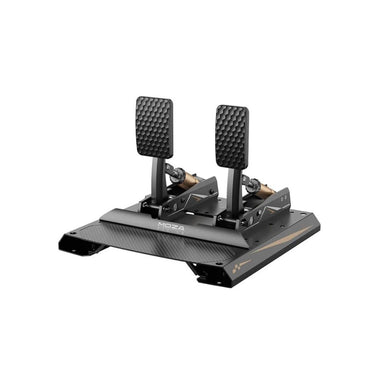
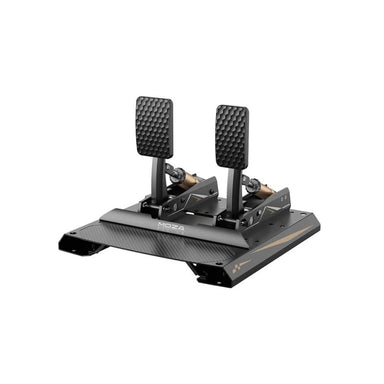
MOZA CRP2 Load Cell Pedals
Shoot for the podium with the MOZA CRP2 load cell pedals Meet the MOZA CRP2 Load Cell Pedals – designed for sim racers who demand precision, du...
View full detailsIf you're chasing faster lap times, dialling in your braking and throttle control is non-negotiable—and that's where quality sim racing pedals come in.
The difference between a good lap and a great one often comes down to how precisely you can brake and accelerate, and high-end sim racing pedals give you that edge.
Load cell and hydraulic pedal sets take realism to a whole new level. They offer firm, progressive resistance and pressure sensitivity that mirrors the feel of real-world race cars.
Every input feels measured, consistent, and dependable—exactly what you need when you're trying to nail that braking point lap after lap.
What makes sim racing pedals even better is how customisable they are. You can tweak the travel, stiffness, and response to suit your driving style or racing discipline.
Whether you prefer the subtle finesse of GT cars or the aggressive feedback of open-wheelers, the right pedals make all the difference.
Durability is another key factor. You should choose sim pedals built to handle hard braking and long sessions without missing a beat.
At Gamer Gear Direct, we stock a wide range of sim racing pedals from trusted brands that deliver the performance, realism, and reliability you need to level up your sim rig.

Read More ...
High-quality sim pedals use advanced sensors to register every throttle and brake pedal input with accuracy.
No more inconsistent braking or lagging throttle response—just smooth, predictable control in every race.
Fine-tuned sensitivity lets you brake harder without locking up and apply throttle with confidence.
Precision-engineered srp pedals give you the consistency you need to take your performance to the next level.

Pedal resistance can ruin your focus and make or break your racing performance.
Adjustable sim pedals let you polish the stiffness and travel to match real-world racing conditions.
Set a firm, progressive brake pedal for better trail braking or tweak throttle sensitivity for smoother acceleration.
Customisable resistance helps you develop muscle memory, improving consistency and control in every race.
Dialing in the right feel makes every lap more intuitive when you’re imitating a high-downforce F1 car or a rally setup. Pedal accessories can refine your setup to meet specific racing needs.

Versatile sim rig pedals let you set the perfect angle and positioning for your driving style.
Reduce strain on your legs and feet while maintaining precision through every lap.
Customisable pedal plate spacing and height ensure a natural fit, keeping you locked in without discomfort.
A well-adjusted setup helps you stay focused, preventing fatigue during endurance races.
Ergonomic adjustments make a difference, allowing you to stay sharp and consistent from start to finish.

Load cell pedals provide more accurate and consistent braking because they measure pressure rather than just movement. This makes braking more natural, allowing better control over stopping power and reducing lockups.
Customising pedal resistance, angle, and spacing allows you to create a setup that matches your driving style. A well-adjusted sim rig pedal setup improves muscle memory, making your braking and throttle control more consistent.
Hydraulic sim pedals replicate real-world brake systems, offering progressive resistance that mimics the feel of an actual race car. This level of realism enhances braking control and provides more feedback. They are especially useful for drivers looking for the most immersive experience or those practicing for real-world racing.
Most high-quality pedals are designed to fit standard sim rig setups, but checking mounting compatibility is always a good idea. Some setups may require a pedal plate or slight adjustments for a perfect fit.
Yes, better pedal control translates to more precise braking, throttle modulation, and overall stability. With load cell or hydraulic pedals, you get consistent inputs that help you brake later, accelerate smoother, and maintain better balance through corners.
Absolutely. Whether you race in F1, GT, rally, or drifting, a high-quality sim pedal set allows you to adjust the feel to suit different cars. Many pedals come with highly adjustable profiles, so you can switch between different resistance levels and pedal mappings based on the type of race you're entering.
With quality materials, CNC machining, and durable sensors, meticulously designed high-end sim pedals are built to last for years. Unlike entry-level pedals that may wear out quickly, premium options are designed for heavy use by sim racers and offer consistent performance on their key features.
Many high-end pedals include software that lets you fine-tune sensitivity, dead zones, and resistance. This makes it easy to adjust the pedals without manually changing hardware settings.

 Sale
Sale
Shoot for the podium with the MOZA CRP2 load cell pedals Meet the MOZA CRP2 Load Cell Pedals – designed for sim racers who demand precision, du...
View full details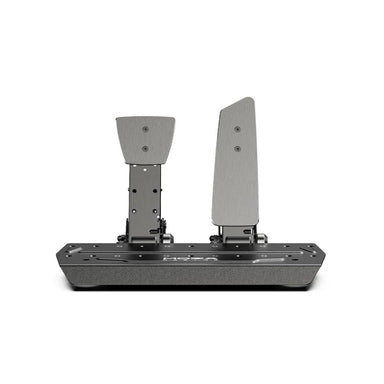
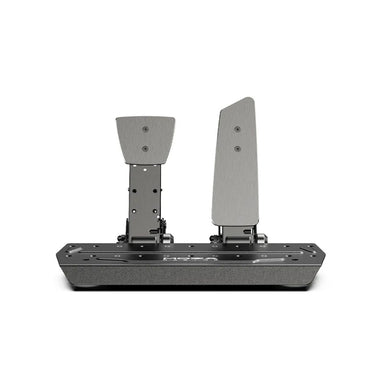 Save $30.00
Save $30.00
Race to win with the MOZA SR-P pedals Elevate your sim racing game to new heights with the entry level, MOZA SR-P load cell racing pedals, wher...
View full details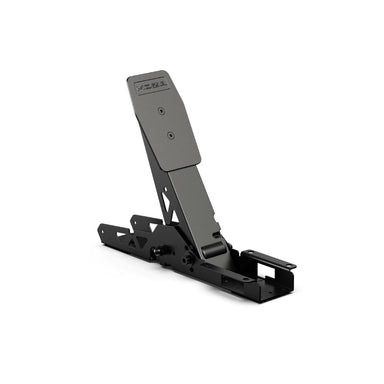
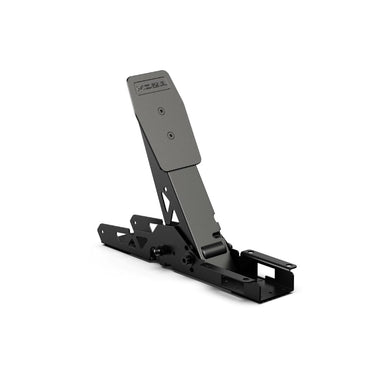 Sold out
Sold out
MOZA SR-P Lite pedals add-on clutch MOZA SR-P Lite racing pedals are machined from high-strength steel, giving superior quality and endurance. ...
View full details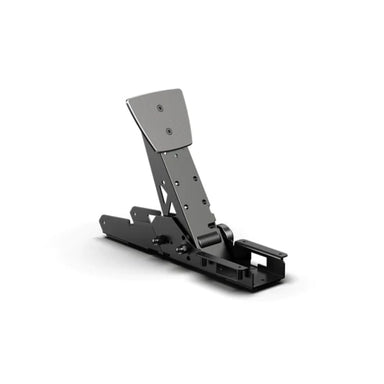
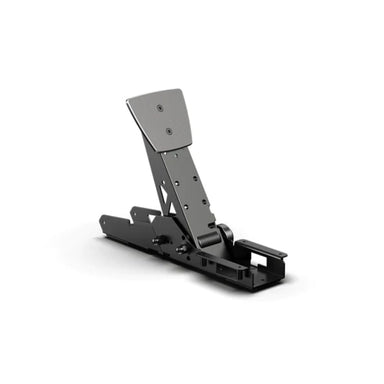 Save $10.00
Save $10.00
MOZA SR-P add-on clutch system MOZA SR-P racing pedals are machined from high-strength steel, giving superior quality and endurance. The clutch...
View full details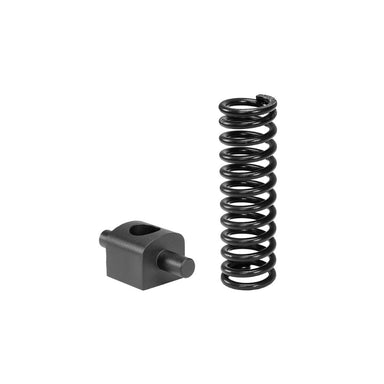
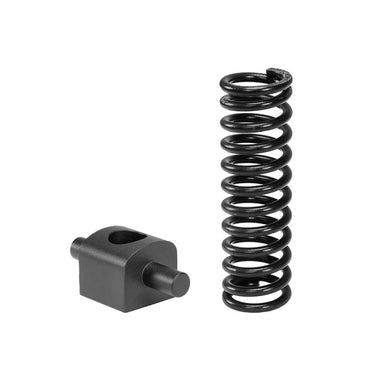 Save $10.00
Save $10.00
Get better throttle control with the Asetek SimSports firm throttle spring Looking to fine-tune your Asetek SimSports pedals? Consider swappin...
View full details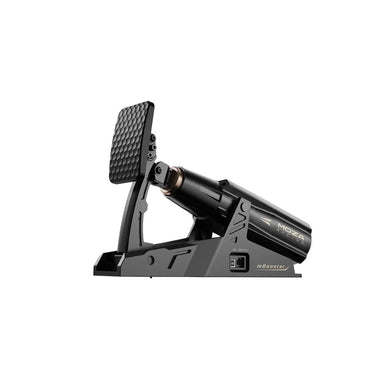
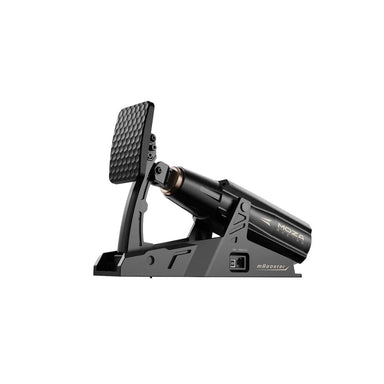 Sale
Sale
MOZA mBooster active pedal Introducing the MOZA mBooster Active Pedal, designed to revolutionise your sim racing experience. Powered by MOZA's...
View full details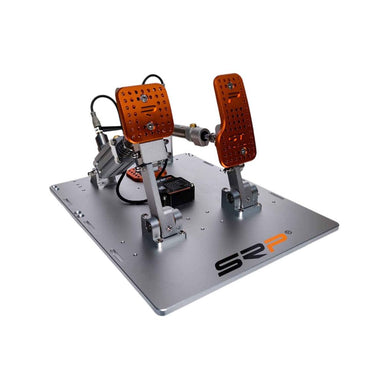
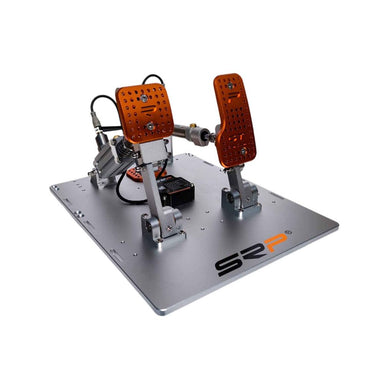 Save $-2,399.00
Save $-2,399.00
Master every virtual track with Sim Racing Pro GT-R pedals Take your virtual racing to new heights with the Sim Racing Pro GT-R pedals. These ...
View full details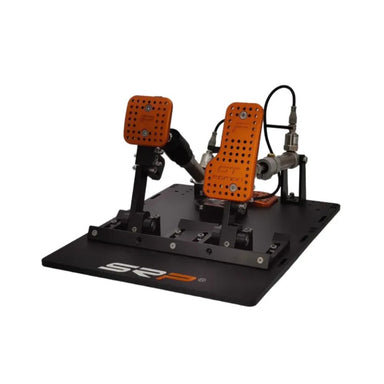
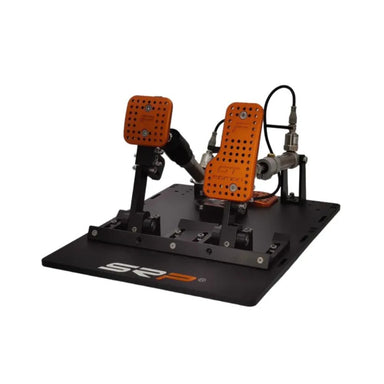 Save $-2,499.00
Save $-2,499.00
Master every virtual track with Sim Racing Pro GT-R pedals Take your virtual racing to new heights with the Sim Racing Pro GT-R pedals. These ...
View full details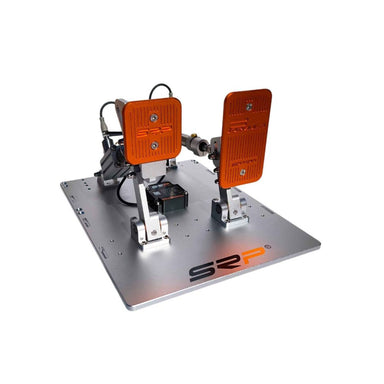
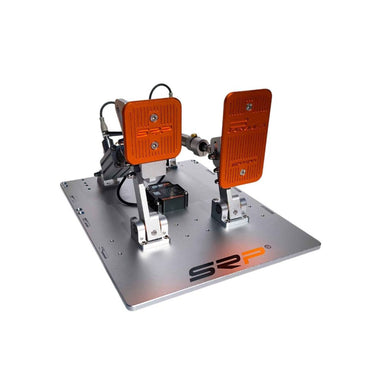 Save $-1,999.00
Save $-1,999.00
Master every virtual track with Sim Racing Pro Formula-R pedals The SRP Formula-R pedals are built for serious racers who demand absolute preci...
View full details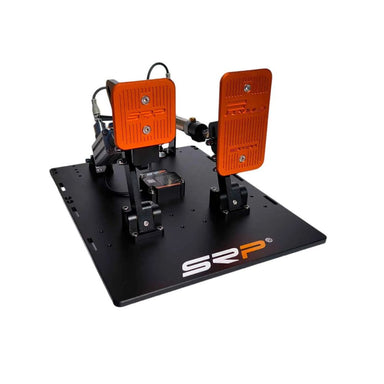
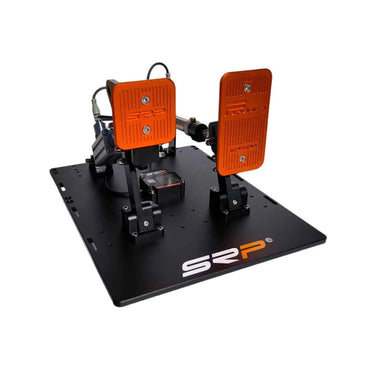 Save $-2,099.00
Save $-2,099.00
Master every virtual track with Sim Racing Pro Formula-R pedals The SRP Formula-R pedals are built for serious racers who demand absolute preci...
View full details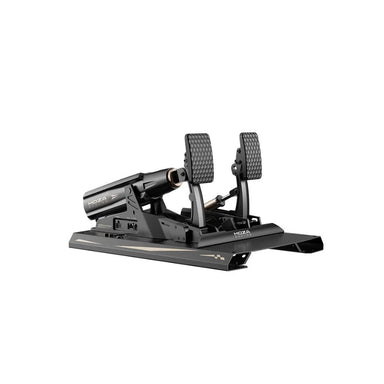
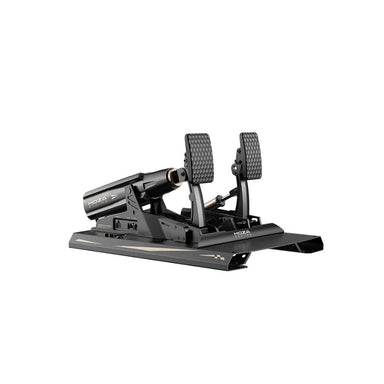 Save $100.00
Save $100.00
MOZA mBooster active pedal set Experience unmatched realism with the mBooster Active Pedal set, designed for precise feedback and dynamic contr...
View full details
 Sold out
Sold out
Logitech G RS Pedals The Logitech G RS Pedals let you brake with the same accuracy you'd feel in a real race car. The 75kg load cell brake figu...
View full details
 Save $-69.00
Save $-69.00
Logitech G RS Clutch Module The Logitech G RS Clutch Module gives racers the true feel of manual control. Made with high-strength steel, it gi...
View full details
 Sold out
Sold out
Logitech G PRO Racing Pedals The Logitech G PRO pedals give drivers the control and precision they need to race to the top. Every press on the ...
View full details
 Sale
Sale
Simucube ActivePedal Pro The Simucube ActivePedal Pro delivers 1100 N (110kg) of force feedback so you can brake harder and more accurately. Ev...
View full details
 Save $-749.00
Save $-749.00
Simucube Throttle Pedal Made to work only with the Simucube ActivePedal, the Simucube Throttle gives you smooth and accurate throttle that make...
View full details
 Sold out
Sold out
Simucube ActivePedal Pro & Throttle Bundle Prepare to combine precision braking and smooth throttle control for a realistic racing setup. ...
View full details
